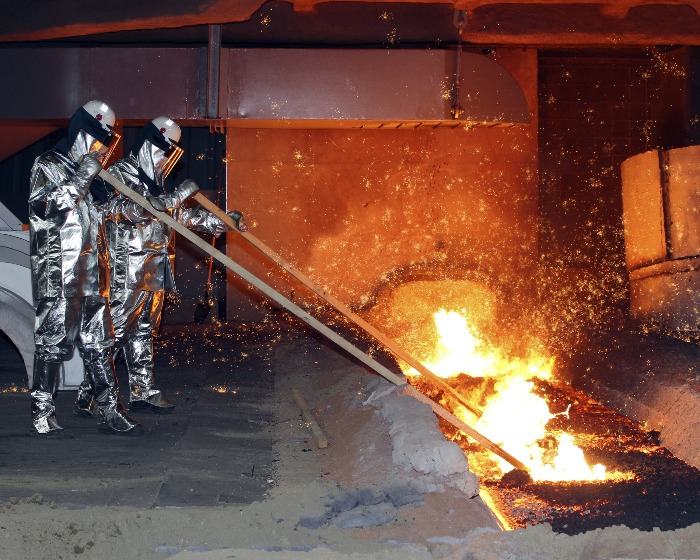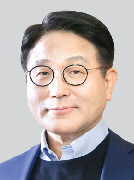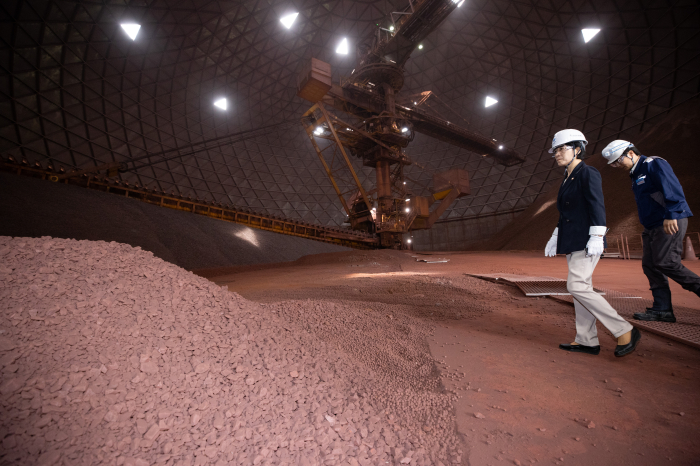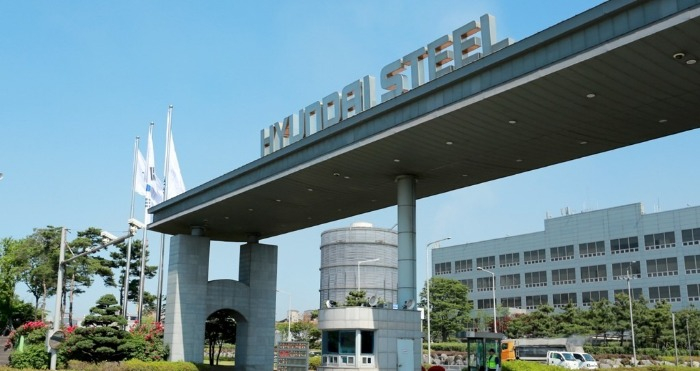Steel
Hyundai Steel aims to reduce reliance on Hyundai, Kia
Its CEO says it can develop new steel types from the new car development stage
By Oct 05, 2023 (Gmt+09:00)
3
Min read
Most Read
LG Chem to sell water filter business to Glenwood PE for $692 million


KT&G eyes overseas M&A after rejecting activist fund's offer


Kyobo Life poised to buy Japan’s SBI Group-owned savings bank


StockX in merger talks with Naver’s online reseller Kream


Meritz backs half of ex-manager’s $210 mn hedge fund



South Korea's Hyundai Steel Co. is aiming to reduce its dependence on its affiliates Hyundai Motor Co. and Kia Corp. to become one of the world’s top three automotive steel makers, its chief executive said.
This year, it plans to supply some 1.2 million tons of steel sheets to foreign automakers other than Hyundai Motor and Kia to increase their proportion to 20% of sales from 17% last year.
It aims to further raise the proportion to 30% within the next two to three years and ultimately 40%, for which it did not give a time frame.
“We will expand our supplies to global carmakers, excluding the two sister companies, to 2 million tons in a short period of time,” Hyundai Steel CEO Ahn Dong-il is quoted as saying in an interview with its in-house publication issued to commemorate the 70th anniversary of the company.
“We also set a goal to become one of the top three global steel plate suppliers based on our technological prowess that has grown to the world's top level,” he said.
This is the first time the company has revealed its overseas sales goals.

He is the only CEO from POSCO in the 70-year history of Hyundai Steel.
Hyundai Steel produces about 5 million tons of automotive steel sheets annually. In 2018, it shipped 11% of automotive steel plates to global carmakers and the proportion rose to 15% in 2019 and 17% in 2020.
Making a two-ton passenger car requires around one ton of steel plates.
Behind Hyundai Steel’s global push is the company's confidence in its steel sheet quality.
“Hyundai Steel’s steel plate technology is at the global top level,” Ahn said.
“Unlike in the past, we are able to develop new steel types from the new car development stage.”
He said the company has developed almost all 105 steel types used for Hyundai Motor in a short period of time.
“The higher the strength of steel plates, the lower their machinability. In other words, improving the machinability decreases their strength. But we are developing technology to improve both properties at the same time,” Ahn noted.

The Hyundai Group arm is now supplying automotive steel plates to dozens of automakers in Europe, Japan, Mexico and Southeast Asia.
“In order to increase external sales ... we are exploring various measures, including forming partnerships with foreign companies,” Ahn added.
In line with the carbon neutrality trend, Hyundai Steel is developing low-carbon steel technology.
In October last year, Hyundai Steel test-produced the world's first 1.0 gigapascal (GPa) grade automotive steel sheet using hot-rolled steel sheets in an electric furnace.
It boasts 67% higher strength than that of automotive steel sheets manufactured from the existing hot-rolled steel sheets, while reducing carbon emissions by 40%.

“When renovating blast furnace No. 1 (slated for around 2024-2025), we will consider introducing facilities that use hydrogen and natural gas as fuels,” the CEO said.
“The problem is the manufacturing cost. But we will prepare thoroughly to push ahead, once the [low-carbon steel plate] race begins.”
Hyundai competes with Nippon Steel, POSCO, ArcelorMittal, and ThyssenKrupp in the automotive steel market.
Write to Hyung-Kyu Kim at khk@hankyung.com
Yeonhee Kim edited this article.
More to Read
-

-

-
 EarningsHyundai Steel extends profit streak in Q2 on brisk auto steel sales
EarningsHyundai Steel extends profit streak in Q2 on brisk auto steel salesJul 26, 2023 (Gmt+09:00)
3 Min read -

-
 SteelHyundai Steel unveils steel sheets with 30% reduction in carbon emissions
SteelHyundai Steel unveils steel sheets with 30% reduction in carbon emissionsSep 14, 2022 (Gmt+09:00)
1 Min read -
 AutomobilesHyundai Steel supplies high-strength steel for Genesis G80 EV, G90
AutomobilesHyundai Steel supplies high-strength steel for Genesis G80 EV, G90Feb 11, 2022 (Gmt+09:00)
2 Min read
Comment 0
LOG IN


